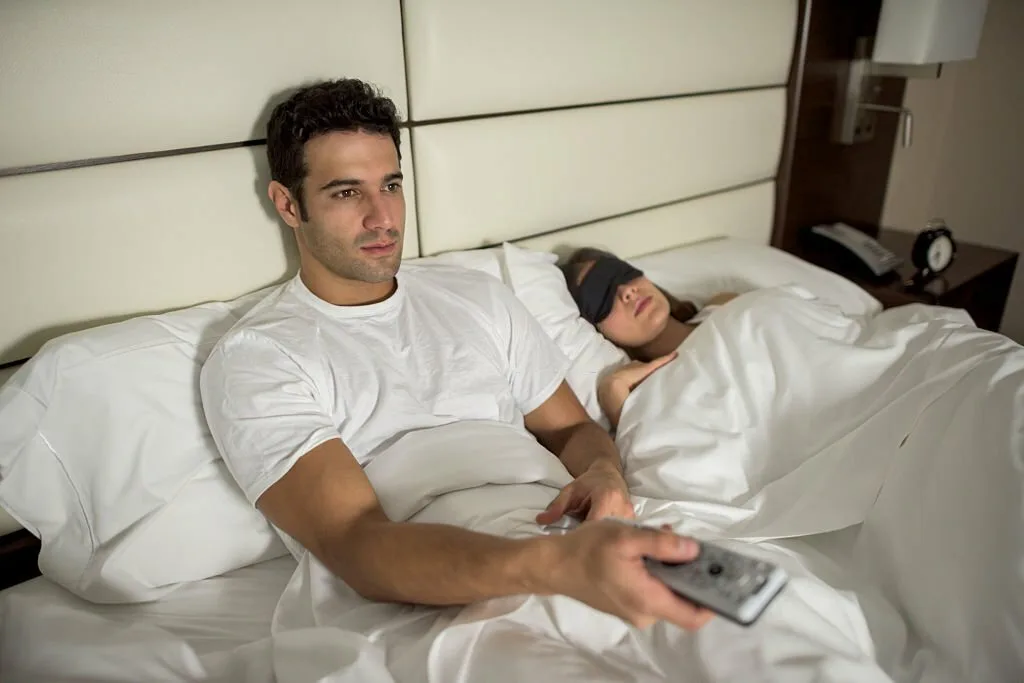Sleep is essential for our physical and mental health. It allows our bodies to rest and repair themselves, and it helps our brains to consolidate memories and process information. Getting enough sleep can also improve our mood, energy levels, and cognitive function.
However, many people struggle to get a good night’s sleep. One reason for this is that they do things before bed that can interfere with their sleep.
Here are some of the things you should avoid doing before bed if you want to get a good night’s sleep:
Watching TV or using electronic devices. The blue light emitted from electronic devices can suppress the production of melatonin, a hormone that helps to regulate sleep. It’s best to avoid using electronic devices in the hour before bed.
Drinking caffeine or alcohol. Caffeine and alcohol can both interfere with sleep. Caffeine can make it difficult to fall asleep, and alcohol can disrupt sleep later in the night. It’s best to avoid caffeine and alcohol in the hours leading up to bedtime.
Eating a heavy meal. Eating a heavy meal close to bedtime can make it difficult to fall asleep and can lead to indigestion. It’s best to eat a light dinner at least 3 hours before bed.
Exercising too close to bedtime. Exercise can help to improve sleep, but it’s important to avoid exercising too close to bedtime. Exercising too close to bedtime can make it difficult to fall asleep. It’s best to finish exercising at least 3 hours before bed.
Taking a nap during the day. Napping during the day can make it difficult to fall asleep at night. If you need to nap, try to keep your nap to 30 minutes or less and avoid napping in the late afternoon or evening.
Going to bed at different times each night. Going to bed and waking up at different times each night can disrupt your circadian rhythm, which is your body’s natural sleep-wake cycle. It’s best to go to bed and wake up at the same time each day, even on weekends.
Not creating a relaxing bedtime routine. A relaxing bedtime routine can help you to wind down before bed and make it easier to fall asleep. Try taking a warm bath, reading a book, or listening to calming music before bed.
Not getting enough sunlight during the day. Sunlight helps to regulate your circadian rhythm. It’s important to get some sunlight exposure each day, even if it’s just for 15-30 minutes.
Not getting enough sleep. If you’re not getting enough sleep, you’re more likely to have trouble falling asleep at night. Most adults need around 7-8 hours of sleep per night.
Having an uncomfortable mattress or pillow. An uncomfortable mattress or pillow can make it difficult to get a good night’s sleep. Make sure your mattress and pillow are comfortable and supportive.
Having too much noise or light in the bedroom. Noise and light can disrupt sleep. Create a dark, quiet environment in your bedroom to promote good sleep.
Being stressed or anxious. Stress and anxiety can make it difficult to fall asleep and can lead to poor sleep quality. If you’re feeling stressed or anxious, try to relax before bed by taking a warm bath, reading a book, or listening to calming music.
Being too hot or too cold. Extreme temperatures can disrupt sleep. Make sure your bedroom is at a comfortable temperature before bed.
If you’re having trouble sleeping, try avoiding the things listed above. You may also want to talk to your doctor about other ways to improve your sleep.

Here are some additional tips for getting a good night’s sleep:
Establish a regular sleep schedule and stick to it as much as possible, even on weekends.
Create a relaxing bedtime routine.
Make sure your bedroom is dark, quiet, and cool.
Avoid caffeine and alcohol before bed.
Get regular exercise, but avoid exercising too close to bedtime.
See a doctor if you have chronic insomnia.




